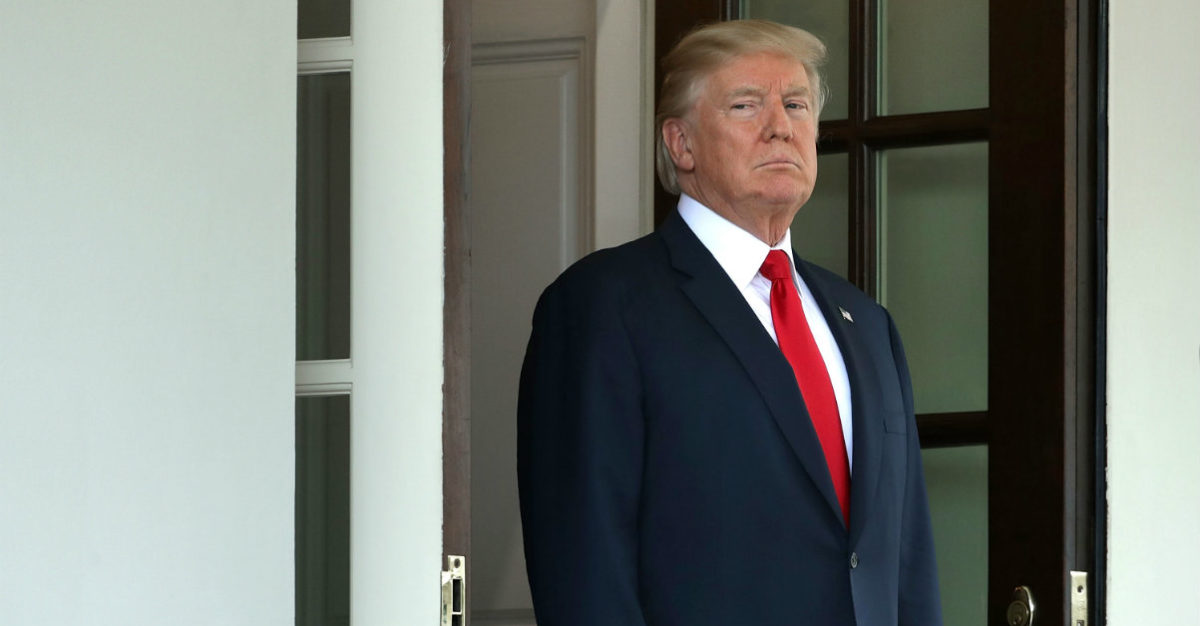
Hours after reports that President Donald Trump was considering re-nominating Rep. John Ratcliffe (R-Texas) as permanent Director of National Intelligence (DNI) surfaced, Sen. Lindsey Graham (R-S.C.) bewilderingly undercut the president, saying he didn’t think anyone would be permanently confirmed to the “redundant” position. The juxtaposition of Ratcliffe’s possible re-nomination — less than a year after his name was abruptly withdrawn because he exaggerated his resume — and Graham’s comments led several legal experts to suggest the president may try to circumvent federal law to keep current Acting DNI (and Trump loyalist) Richard Grenell in the role without Senate confirmation for the foreseeable future.
The appointment of Grenell — a highly partisan Trump acolyte with no intelligence agency experience — is of particular concern to national security experts who widely believe he was installed to politicize highly sensitive and otherwise apolitical information gathered by the nation’s 17 intelligence agencies.
Under the Federal Vacancies Reform Act (FVRA), Grenell can only serve as Acting DNI until March 11. However, if Trump nominates a permanent successor for the job, Grenell could find himself in the position indefinitely.
Citing to Section 3346 of the FVRA, NYU Law professor and former Department of Defense attorney Ryan Goodman explained on Tuesday that the White House may strategically nominate Ratcliffe, whom the Senate “will certainly not confirm,” because simply nominating him would toll the countdown on Grenell’s time as Acting DNI.
“If Trump nominates Ratcliffe and then Senate rejects Ratcliffe (or Trump withdraws the nomination), Grenell gets to stay 210 days after the date of rejection/withdrawal,” Goodman wrote.
https://twitter.com/rgoodlaw/status/1232364681421037570?s=20
The text of 5 U.S. Code § 3346 (b) pertaining to the tolling of time limitations for acting officers is as follows:
(1) If the first nomination for the office is rejected by the Senate, withdrawn, or returned to the President by the Senate, the person may continue to serve as the acting officer for no more than 210 days after the date of such rejection, withdrawal, or return.
(2) Notwithstanding paragraph (1), if a second nomination for the office is submitted to the Senate after the rejection, withdrawal, or return of the first nomination, the person serving as the acting officer may continue to serve—
(A) until the second nomination is confirmed; or
(B) for no more than 210 days after the second nomination is rejected, withdrawn, or returned.
University of Texas School of Law Professor Steve Vladeck concurred with Goodman’s assessment of the White House’s possible strategy.
“This is definitely a possibility,” Vladeck wrote. “Under the Federal Vacancies Reform Act, a nomination tolls the 210-day clock for acting officers—for so long as the nomination is pending, and then some.”
Eric Columbus, a former Obama DOJ lawyer, and David R. Lurie, a New York City attorney and Daily Beast contributor, similarly thought Goodman’s theory rang true.
[Image via Chip Somodevilla and Getty Images.]